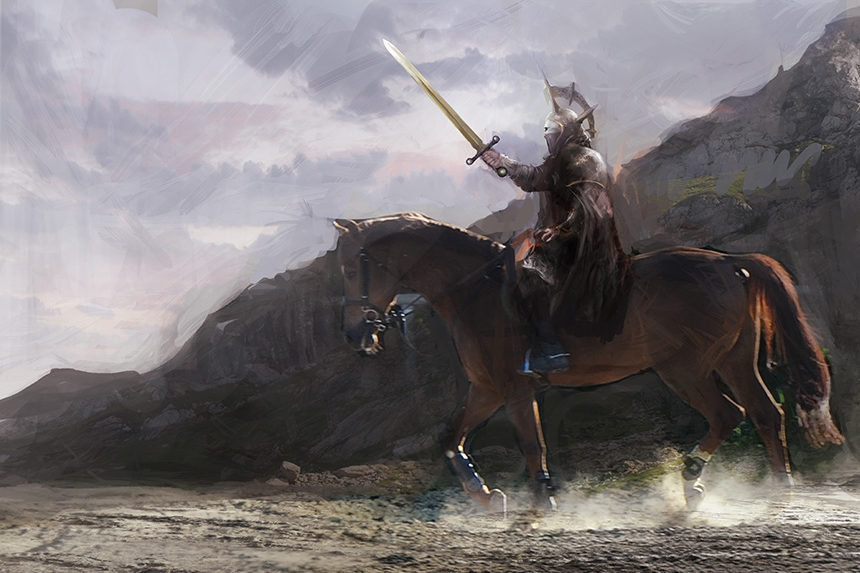Managing editor and logophile Andy Hollandbeck reveals the sometimes surprising roots of common English words and phrases. Remember: Etymology tells us where a word comes from, but not what it means today.
Though the words martial and marshal sound alike and both have a long history in the language of war, these two homophones derive from two very different sources.
The adjective martial, part of the English language since the 14th century, comes from the name of the Roman god of war, Mars. Martial originally meant “of or pertaining to war,” and by the end of the 15th century was extended to mean “pertaining to military organizations.” That’s what it indicates in court-martial (a trial conducted by and for the military) and martial law (in which the law is maintained by military forces rather than a civilian police corps).
You might notice that the name of the god Mars has spawned two separate adjectives: martial and Martian — the latter referring to aspects of (and beings from) the planet named after him. He’s not the only god to have created such a lexical split: From Jupiter — also called Jove — we derive both jovial and Jovian, and from Mercury we get mercurial and (the fairly rare) Mercurian.
Marshal has a different history. It entered English from French, which is a Romance language, being derived from Latin. But it doesn’t all come from Latin: Like guy, marshal began its etymological journey from German, specifically from the Germanic Franks. The Old High German marahscal was a compound comprising marah “horse” (the source of the English mare) and scalc “servant.” The original “marshals” were the people in charge of the horses.
Remembering that marshals once corralled horses can help you remember that marshal is the spelling of the verb in phrases like “marshal your forces.” Marshal as a verb is practically synonymous with corral in a metaphorical sense.
As horses became more important in war efforts — we’re talking a millennium and a half ago here — so did the marshals who took care of them. By the time the word entered Old French, as mareschal, the term had become a title for a high-ranking army general. The word continued to evolve in French so that, by the time it was adopted into English in the 14th century, it was a high-ranking royal officer.
Since then, marshal has found a varied life in the language, from the law enforcement efforts of the U.S. Marshals Service to the ceremonial grand marshal of your local Independence Day parade.
Finally, neither martial nor marshal should be confused with the double-L-ended proper noun Marshall, as in the names of Canadian philosopher Marshall McLuhan; Marshall Field, who founded the department store that bore his name; former U.S. Secretary of State George C. Marshall, who came up with the Marshall Plan; and British naval captain John Marshall, for whom the Marshall Islands are named.
And no, people from the Marshall Islands aren’t called “Marshians”; they’re Marshallese.
Featured image: Shutterstock
Become a Saturday Evening Post member and enjoy unlimited access. Subscribe now




Comments
This is another interesting feature about something I’d never thought about, don’t really need to know, but like knowing. Now I can’t get it out of my head, Andy.